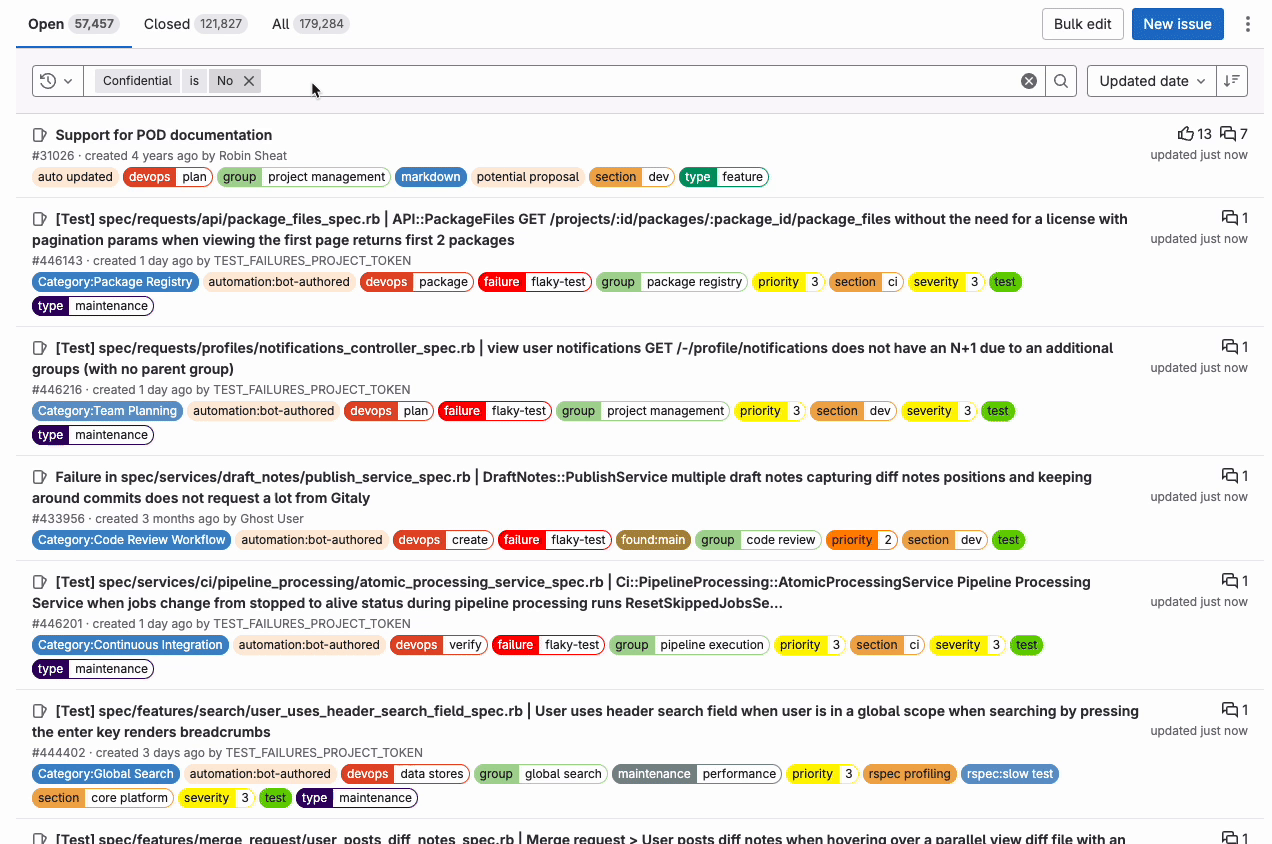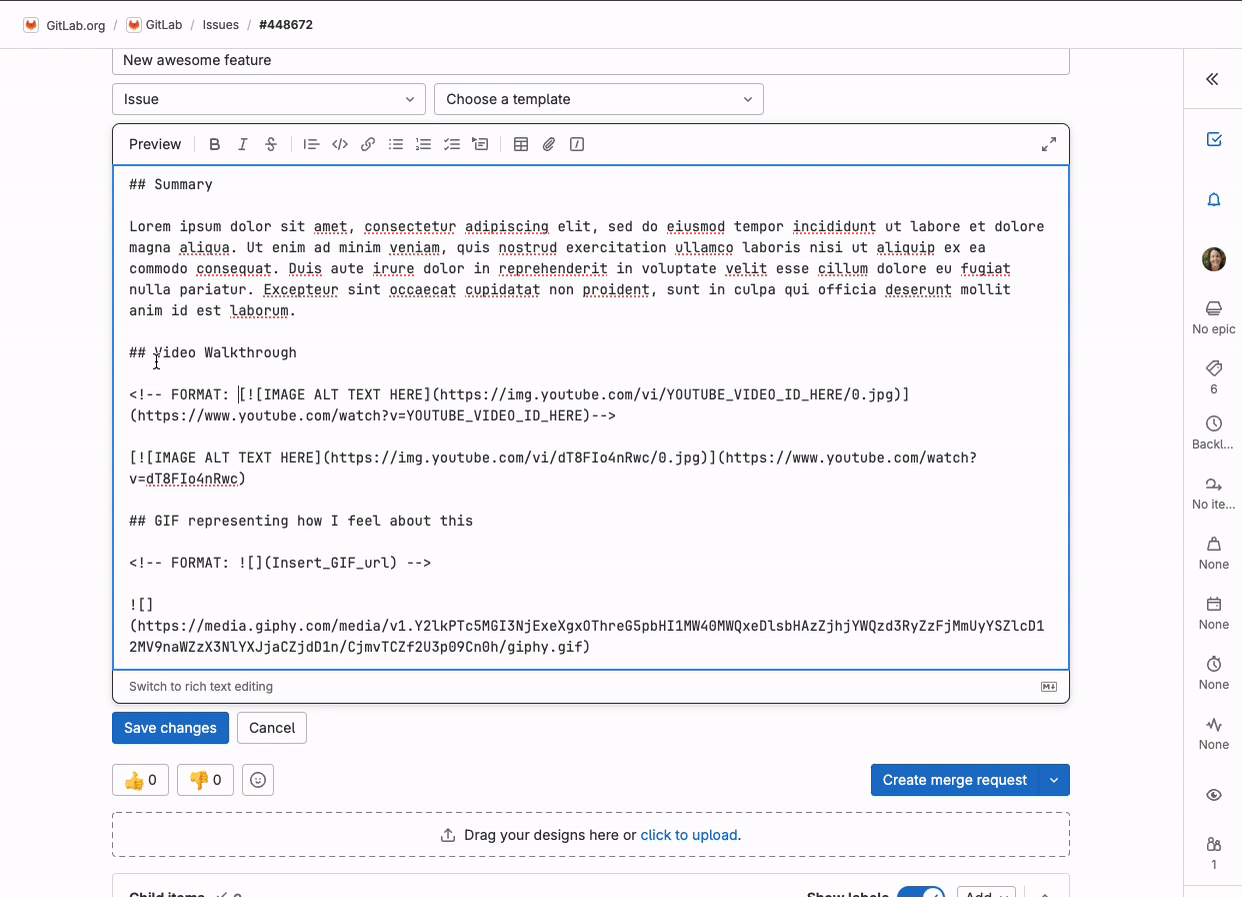In the world of software development, efficiency isn't just about moving fast – it's about smart navigation. As a GitLab product manager, I truly understand the value of efficiency when working within the DevSecOps platform. These are my top 10 favorite GitLab features and they might be the workflow hacks you never knew you needed.
Let's dive into these hidden gems to unlock a new level of productivity and collaboration within your team.
1. Resolve comments
Not just for merge requests! Resolving comments on issues can significantly reduce noise and streamline task management. It's particularly handy for managing feedback efficiently.
Why do I love it? Not only does resolving comments reduce the noise on an issue, but it’s also a great way to manage tasks.
Use case. Resolving comments is a great tool for issues where you are collecting feedback – respond to the feedback and provide a link, resolve the comment, and move on to the next one.

2. Internal comments
Speak directly to your team without an external audience. Keep discussions private within an issue or merge request with comments visible only to your team members. It's the perfect balance between transparency and privacy.
Why do I love it? It balances privacy with transparency, while keeping the broader discussion open for the community.
Use case. When coordinating a product launch, your marketing team can use internal comments to discuss and refine messaging and strategy. This keeps your discussions centralized and easily accessible to the team while in draft mode.

3. And/or in filters
When searching records on a listing page, using and/or filters can help you slice through the noise and find exactly what you're looking for quickly and efficiently.
Why do I love it? Perfect for finding exactly what you need, powering efficient and streamlined workflows.
Use case. Search for feature issues related to a specific initiative that are assigned to specific groups.

4. Auto expand URLs
Appending '+' or '+s' to the end of a GitLab URL transforms it into an informative snippet, allowing you to share progress without forcing your teammates to leave the page.
Why do I love it? It's like having x-ray vision for URLs – see the important stuff without even clicking!
Use case. Sharing progress in comments? Just add '+s' to the link, and boom – everyone's instantly on the same page.

5. Quick actions
With simple text commands, quick actions let you perform tasks like assigning users, adding labels, and more, directly from the description or comment box, saving you clicks and time.
Why do I love it? Saves clicks and time.
Use case. When creating a new issue I use quick actions to automatically add labels, a milestone, and connect to the epic upon saving the record.

6. Bulk edit
Apply labels, change assignees, or update milestones for multiple issues at once. This feature turns potentially tedious updates into a breeze, allowing for quick adjustments across numerous issues.
Why do I love it? Because it turns tedious updates into quick updates!
Use case. Need to tag the whole sprint's issues as Review needed? Just filter, select all, and add that label in bulk – easy peasy.

7. Epic swimlanes
Group issues under epics on your board to visually track and discuss progress. It's a powerful way to contextualize work during reviews or standups.
Why do I love it? Easily understand the context of work as you’re walking the board.
Use case. Group by epic during standup reviews to easily piece together work with its parent initiative.

8. Wiki diagrams
Illustrate ideas and workflows directly in your wiki pages with easy-to-create diagrams. This feature supports visual learning and simplifies complex concepts.
Why do I love it? It’s incredibly user-friendly and flexible.
Use case. When outlining a new feature workflow, draw it directly in the wiki page, making it crystal clear for everyone on the team.

9. Table creation
Forget about wrestling with markdown for table creation. The rich text editor lets you effortlessly insert and format tables, making documentation cleaner and more structured.
Why do I love it? It turns the table creation ordeal into a breeze, making updates clean and structured with just a few clicks.
Use case. Compiling a sprint retro? Quickly insert a table to organize feedback, action items, and owners, making the review process smoother for everyone.

10. Video and GIF embeds
Enhance your issues and epic descriptions or comments with embedded GIFs and YouTube videos, adding a dynamic layer to your communication.
Why do I love it? Sometimes a GIF or video speaks better than words.
Use case. Trying to explain a UI bug? Embed a YouTube video for a quick walkthrough of the proposed feature enhancement.

Explore these features
These features represent just the tip of the iceberg in GitLab's comprehensive toolkit designed to boost efficiency and foster better collaboration. While they may be underutilized, their impact on your workflow could be substantial. I encourage you to explore these features further and integrate them into your daily routines.
Are you excited to power your DevSecOps workflow using GitLab? Try GitLab Ultimate for free for 30 days.




